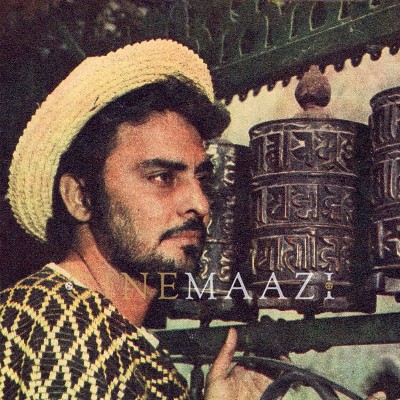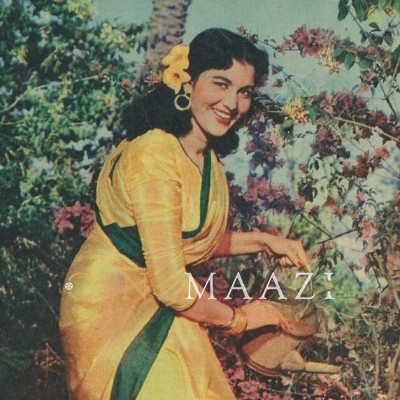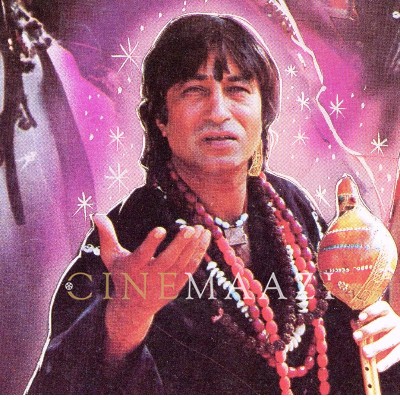Kiran Deohans

Subscribe to read full article
This section is for paid subscribers only. Our subscription is only $37/- for one full year.
You get unlimited access to all paid section and features on the website with this subscription.
Not ready for a full subscription?
You can access this article for $2 , and have it saved to your account for one year.
- Primary Cinema: Hindi
- Spouse: Aban Deohans
- Children: Tania Deohans, Dave Deohans
Prominent cinematographer Kiran Deohans is known for his flawless, vibrant and dramatic visual language as seen in well-appreciated, big-ticket entertainers such as Jodhaa Akbar (2008), Qayamat Se Qayamat Tak (1988), Kabhi Khushi Kabhie Gham (2001), and Aks (2001), as well as for his high level of professionalism and perfectionist attitude. He was nominated for the Asia Pacific Screen Awards (2008) for achievement in cinematography for Jodhaa Akbar, as well as for the Screen Awards (2002) for best cinematography for Aks (2001). His work in Qayamat Se Qayamat Tak earned him the Filmfare award for best cinematographer. He has also directed over a 1000 ad commercials for products such as Pepsi, Colgate and Voltas, as well as the romance short Tumhe Dillagi (2016) featuring Vidyut Jammwal and Huma Qureshi.
Hailing from Jalgaon, a small-town in Maharashtra, he largely watched Hindi films as a child; later, shifting to Pune, his exposure to films, including Hollywood fare, grew. A budding painter, he wanted to join the J J School of Art; however, his parents wished for him to become a lawyer or engineer and he joined the Science stream and completed his BSc at Fergusson College. Having friends who studied at the Film and Television Institute of India (FTII), one visit to the campus sparked the desire in him to learn about films in general and cinematography in particular. He felt it combined his hobby - painting – in a constructive way. He chose the best option for himself – FTII, graduating as a cinematographer from the Institute in 1981. Previously exposed to massy entertainers, it was at FTII that he came to know that there were so many different styles and genres of films from various countries - Japanese, European, American, not to forget the entire Indian regional film industry.
He started his career as an assistant cameraman in feature films, initially assisting K K Mahajan for around six months, following which he served as an assistant to cinematographer Nadeem Khan for around two to three years. He worked as camera assistant for Kasam Paida Karne Wale Ki (1984), an action-drama directed by B Subhash; followed by chief camera assistant for the action film Misaal (1985), and the Vinod Pande-directed Ek Naya Rishta (1988); all three of which were cinematographed by Nadeem Khan. He credits this as an important phase in his growth of learning under the ‘thorough gentleman’ as he calls Khan, who also gave him the liberty to experiment as he wished.
Post this, he began doing ad films and the production house he worked for was owned by Mansoor Khan, son of filmmaker Nasir Hussain. Khan got to know him as he was shooting several commercials and corporate films for the company, and soon signed him up as director of photography for his directorial debut – Qayamat Se Qayamat Tak (1988). He considers himself very lucky for having bagged his first feature within two years of coming to Bombay. He went on to win the Filmfare award for the film as well. The romantic musical film was written and produced by Nasir Hussain and directed by Mansoor Khan. It starred Aamir Khan in his leading film debut along with Juhi Chawla. The film, a modern-day take on classic tragic romance stories, released to widespread critical acclaim and was also a major commercial success at the box office. It turned its lead pair into superstars and is also credited with reinventing the romantic musical genre in Hindi cinema. A milestone in the history of Hindi cinema, it set the template for musical romance films that defined Hindi cinema in the 1990s. Deohas played a key role in visually translating this tale of star-crossed lovers onscreen.
In spite of many subsequent offers from big productions, he chose to concentrate on shooting and directing commercials. He shot hundreds of commercials and won many awards for his work.
Next, he took up Rakeysh Omprakash Mehra’s directorial Aks: The Reflection (2001), for which he would receive nominations from both Filmfare and Screen. The action crime drama revolved around Raghavan Ghatge, a psychotic terrorist, and Manu Verma, the cop who tracks him down. The two shoot each other simultaneously, the result being that Raghavan's soul is transferred into Verma's body and vice versa. The cinematography and visuals of the film earned praise from The Hindu and other media.
The same year, he cinematographed Kabhi Khushi Kabhie Gham (2001), the romantic drama directed by Karan Johar. Replete with rich visuals, it told the tale of a splintered family on the mend. The story revolved around Rahul who, after marrying a poor woman, is disowned by his wealthy father. He moves to London to build a new life. Years later, his now-grownup younger brother Rohan embarks on a mission to bring Rahul back home and reunite the family. Deohans’s work in the film won him the Sansui award for best cinematography.
He went on to serve up a grand visual feast in the sumptuous period epic Jodhaa Akbar (2008). Directed by Ashutosh Gowariker, the film is essentially a 16th century love story about a marriage of alliance that gave birth to true love between a great Mughal emperor, Akbar, and a Rajput princess, Jodha. Starring Hrithik Roshan and Aishwarya Rai, it was a critical and commercial success, becoming the third-highest-grossing film of the year. Shot extensively at historical locations across Rajasthan as well as at N D Studios, Deohans employed six cameras to film the climax scene from different angles. He was reportedly influenced by films such as Gladiator (2000) and Troy (2004) as he found the "basic colour" of those films' locations similar to that of Rajasthan’s arid surroundings. Deohans’s team of technicians would reportedly arrive on the sets at 7.30 am and only by 11 am would they have completed setting up the lights, according to his high-level of perfectionism. As the sets erected were 1300 feet high and demanded proper light composition to add depth, a detailed timetable was created stating the timings at which the sunlight was precisely fall on the different parts of the set.
He collaborated again with Ashutosh Gowarikar for Khelein Hum Jee Jaan Sey (2010), a historical drama starring Abhishek Bachchan and Deepika Padukone. The film depicted the Chittagong uprising from its beginning to its aftermath, an 18 April 1930 attempt to raid the armoury of police and auxiliary forces in Chittagong (then part of the British Raj's Bengal Presidency) by armed Indian Independence fighters led by Surya Sen. The film was praised for unfolding like a relentless thriller with loads of action, as well as for its extensive detailing which lent authenticity to the recreation of the bygone era.
Agneepath (2012) saw him give dramatic visualisation to the Karan Malhotra-directed thriller about a young boy whose father is lynched before his eyes; and who returns home 15 years later for revenge. A reboot of the eponymous 1990 film starring Amitabh Bachchan and directed by Mukul S Anand, it received positive reviews from critics with praise particularly directed towards its direction, screenplay, music, cinematography and performances (particularly those of Hrithik Roshan, Sanjay Dutt and Rishi Kapoor). Hailed for being hard-hitting yet entertaining, it was rated as a fitting tribute to the masterwork, an adaptation rather than a remake.
In 2016, he worked on the Omung Kumar directorial Sarbjit, a biopic on the eponymous farmer residing at Bhikiwind, Punjab, near the Indo-Pak border, who crossed the border after having a couple of drinks. However, he was mistaken to be an Indian spy and was sentenced with capital punishment. The same year he also cinematographed 24 (2016), directed by Vikram K Kumar and starring Suriya, Samantha Ruth Prabhu and Nithya Menen about a scientist inventing a time machine, which leads to a bitter battle between his evil twin brother and his son.
His next big project Manikarnika: The Queen of Jhansi (2019), was also a biographical film recreating the story of Rani Lakshmibai, one of the leading figures of the Indian rebellion of 1857, and her resistance to the British rule. It was followed by Mrs Serial Killer (2020), directed by Shirish Kunder with a plot revolving around a doctor who gets jailed for a string of shocking murders. His loyal wife then sets out to commit a copycat crime to prove his innocence.
While Deohans has largely cinematographed wide-canvassed, richly-mounted productions, he has also worked on small-budget, niche films such as the Deepti Naval-directed Do Paise Ki Dhoop, Chaar Aane Ki Baarish (2009), that looked at the ensuing bonds that form when a sex worker hires a gay songwriter to care for her disabled son. He also cinematographed the Shivendra Singh Dungarpur-directed documentary Celluloid Man (2012), which told the story of P K Nair, a man who talks, eats, dreams and sleeps cinema. Lovingly known as the Henri Langlois of India, Nair is the man behind the archiving of many films in India. Other smaller productions he worked on include the Prabhudeva-directed Ramaiya Vastavaiya (2013), the TV film Prateek Group directed by Afzal Ahmad Khan, and Music School (2023), a Paparao Biyyala-directed 11-song musical about how the prevailing Indian education system and parents put pressure on children to be competitive in their studies, thereby leaving no time for art and culture. Against this background, two music and drama teachers Mary and Manoj struggle to put up The Sound of Music.
Deohans considers it important for a DoP to like either the director or the script – if both are good, then it’s the right project. Primarily, it starts with a good script which would most likely be brought to life by a good director. Cinematography, he believes, is a combination of intuition and learning the craft; the latter helps support and translate the vision to reality onscreen. Inspiration for cinematography comes from many corners, he maintains, and the biggest inspiration is life itself: observing daily life, people around, locations, sunlight, moonlight, artificial lights, and more. When it comes to filmmaking in totality, besides observing real life, one needs to read books, understand and absorb them, watch films, talk to friends, and discuss with peers and colleagues, he vouches.
Deohans’s wife, Aban Bharucha Deohans is a celebrated author and director. Her short film Teaspoon was awarded the best screenplay at the prestigious Dada Saheb Phalke Film Festival and has also won several awards nationally and internationally. The couple’s children - daughter, Tania Deohans, and son Dave Deohans are both in the same creative field of filmmaking.












.jpg)



